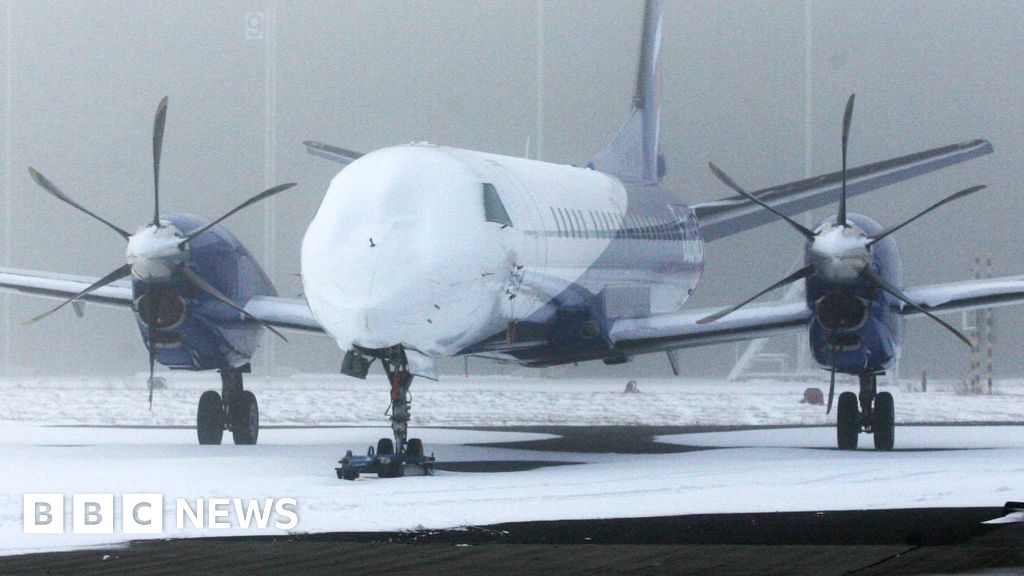
 Getty Images
Getty Images
More than half of the tax rises in the Budget will be paid for by businesses with a hike in the amount employers pay in National Insurance to generate £25bn.
Chancellor Rachel Reeves has decided firms will bear the brunt of her £40bn total tax rise by increasing the National Insurance rate as well as reducing the threshold that employers start paying it at.
Although there was some exemption for the smallest firms, some business groups said the chancellor's choices offered nothing but "pain" and warned they would have less money to create new jobs or give pay rises.
Reeves said the rise in National Insurance hike was a "difficult", but right choice in order to fund public services.
As well as the increase to National Insurance, businesses overall face having to pay higher minimum wages, higher business rates, as well as the cost of adapting to new workers' rights under new laws.
Firms, particularly smaller ones, have warned such extra costs could leave them less spare cash to invest, hire staff or offer pay rises - and ultimately impact the government's goal of growing the UK economy.
But Reeves said the "only way" to drive growth was through investment, warning "there are no shortcuts".
"We are asking business to contribute more," said Reeves. "I know that there will be impacts of this measure felt beyond businesses."
Businesses come in all shapes and sizes, meaning the impact of the choices made by the chancellor in her Budget will affect them differently. Big, multinational corporations, are likely to be able to take on and absorb extra costs, but smaller, independent companies, could be hit harder.
'Pain'
There are concerns that the rise in taxes will end up hitting workers and consumers. In some cases, companies could pass on the increased costs they face through higher prices, however, employee wage rises could be restricted as employers look for savings. Other tax revenues could also be hit, if firms make smaller profits and people receive smaller pay packets.
Leading business groups said the Budget was a "tough" one for business, pointing to the National Insurance hike as a blow to the ability of firms to invest.
"At first blush, there is precious little in the government’s first Budget which offers anything other than short-term pain," said Roger Barker, director of policy at the Institute of Directors.
Rain Newton-Smith, chief executive of the CBI, which claims to represent 170,000 firms, said the burden on business would make it "more expensive to hire people or give pay rises".
Shevaun Haviland, the director-general of the British Chambers of Commerce, said the chancellor had looked to "ease the pain" by promising better days ahead, but admitted "this is a tough Budget for business to swallow".
What are the higher costs facing businesses?
Kate Nicholls, chief executive of UK Hospitality, which represents pubs, restaurants and cafes across the country, added tax rises would be a "brake on growth" for the UK.
"Businesses on paper-thin margins are already grappling with big increases in employment costs - we are seeing jobs and hours cut, investment slashed and business viability undermined as well as prices going up," she added.
The government is pledging to be both "pro-business" and "pro-worker" in its policy decisions.
Reeves confirmed Income Tax, National Insurance for employees and VAT would not be increased.
While inflicting the pain of tax rises on businesses, the chancellor offered some relief to small firms, by uplifting the amount they can claim back off their National Insurance bill.
However, Paul Johnson, director of the Institute of Fiscal Studies think tank, described the measure as "very small beer".
The chancellor also said the 75% relief on business rates, which are charged on most non-domestic properties such as shops, offices, pubs and factories and were due to expire in April, would be replaced by a 40% discount for retail, hospitality and leisure companies next year.

 Movie
Movie 2 months ago
48
2 months ago
48 





![Presidents Day Weekend Car Sales [2021 Edition] Presidents Day Weekend Car Sales [2021 Edition]](https://www.findthebestcarprice.com/wp-content/uploads/Presidents-Day-Weekend-car-sales.jpg)



 English (United States)
English (United States)